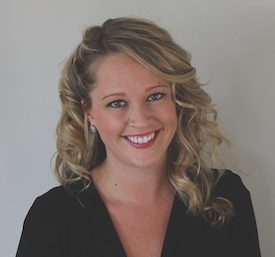It’s safe to say that many people know that a reverse mortgage is a loan that can be used by a older homeowner who wants to extract the equity in their house. But what many people don’t know is that there is a type of reverse mortgage that can be used to purchase a house. And while it’s not for everyone, it could be a retirement gamechanger for a good number of people.
It’s not uncommon to sell off the family home and downsize or relocate as you reach retirement. According to the National Association of Realtors, older adults comprise 38% of homebuyer market, and most choose some kind of financing. Obviously, paying 100% cash for a new house isn’t realistic for most people, but taking on a mortgage in retirement isn’t exactly ideal.
There’s another option out there: a little-known, barely used variation of the reverse mortgage.
It’s called a Reverse for Purchase or, using the official product name Home Equity Conversion Mortgage, a HECM for Purchase. It allows someone over the age of 62 to purchase a primary residence and obtain a reverse mortgage in a single transaction with one set of closing costs, effectively moving into a new home without incurring a monthly mortgage payment.
The deal requires a significant down payment, often more than half the purchase price, and that equity is then used to generate the reverse mortgage.
But most people have never even heard of this loan, even though it’s been around for more than a decade.
Since 2013, lenders have originated just over 11,000 HECM for Purchase loans, according to data analytics firm Reverse Market Insight, with the greatest number closed in California, Florida and Utah. From January to May 2018, the industry closed just over 1,000 of these loans.
The problem, according to some reverse mortgage specialists, is that the industry hasn’t done a good enough job promoting the product.
“The main reason that the HECM for Purchase has not blossomed is not because there’s anything wrong with the product, it’s because our industry doesn’t know how to deal with Realtors,” said Professional Mortgage Alliance President Michael Banner, who has spent years teaching Realtors around the country about the product.
“The industry needs to go out and educate Realtors – not sell, but educate – on what this product really means,” Banner added.
Chris Bruser is a Certified Reverse Mortgage Professional with Retirement Funding Solutions, which has closed the most HECM for Purchase loans in the last five years than any other lender in the space, according to RMI.
Bruser said it’s essential that Realtors learn about this product so they can be a better resource for a sizable demographic of older homebuyers. It can also give them a solid competitive advantage.
“A high percentage of older adults are going to move or right-size. Their housing needs are changing as they age, and the market potential is huge,” said Bruser. “To ignore a product that could help them do this doesn’t make any sense.”
Bruser said a HECM for Purchase can help free up cash for a homebuyer at a time in their life when liquidity is especially important.
“An AARP study of retirees revealed that their No. 1 fear is not death, it’s running out of money. The HECM for Purchase could allow them to buy the home that they want and not have to use 100% of their cash,” Bruser said. “As the saying goes, ‘You can be young without money, but you can’t be old without money.’”
Banner noted that for Realtors, this product could be especially lucrative. Because 50%-60% of the purchase price is covered by the loan, it might mean that a buyer could purchase a more expensive house.
“Mr. Realtor, what would you like a commission on – a $300,000 house or a $400,000 house? You could increase your commission by 33% with this,” he said. “The upsell, the higher commission, that’s what’s going to get the Realtor’s interest. That’s what’s going to get the loan officer past the guard gate at the RE/MAX office.”
But, Banner points out, it’s not just the Realtor who benefits.
“This could be the difference in the clients purchasing their dream retirement home or settling for a lesser home, thinking they had no other option.”







